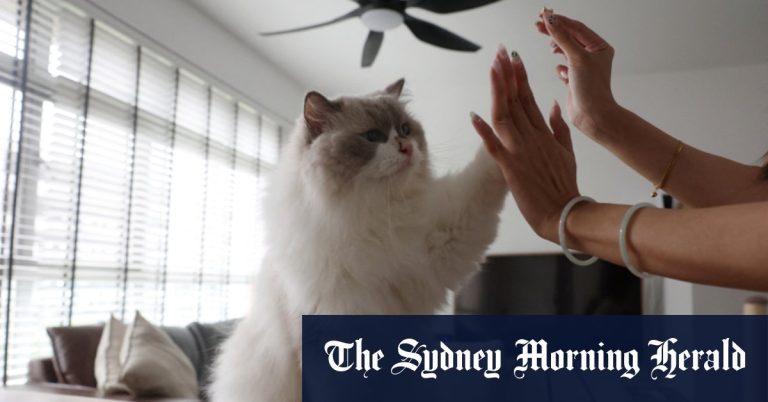Singapore's ban on cats in public housing is another example of the strict, rules-based culture in the city-state, where the sale and import of chewing gum, for example, remains prohibited.
Established in 1960, the Housing and Development Board program sells government-built units directly to eligible citizens under 99-year leases. This has led to one of the highest rates of homeownership in the world, but residents are subject to many restrictions and regulations.
Cats were allowed in apartments until Parliament amended the Housing Act in 1989. On its website, the Housing and Development Board justifies the ban by saying that cats are “difficult to contain inside an apartment…they tend to shed fur and defecate or urinate.” In public places, and also make noises that may disturb your neighbors.
download
It is not clear what made the government decide to overturn the ban, but the turning point appears to be an official poll in 2022 that showed nine out of 10 respondents agreed that cats are suitable pets to keep, including in public housing.
Authorities are now canvassing the views of members of the public on a “proposed cat management framework” which is due to come into force later in 2024.
Dogs have not been subject to a similar ban, but are limited to one dog per household, and only certain breeds and sizes can be kept as pets. It's yes to miniature poodles, no to golden retrievers, for example.
download
Market research firm Euromonitor International has predicted a significant increase in cat ownership. In a report on the future prospects of cat food companies, it was estimated that the number of pets in Singapore is about 94,000 cats and 113,000 dogs.
Ng, who ran an animal welfare group before joining Parliament in 2015, hopes the change will lead to more people adopting rescued cats.
Under the proposed framework, Housing and Development Board residents would be limited to two cats; Licensing and microchipping will be enforced and mesh screens will be installed on windows so cats don't fall out.
Some cat lovers say the new regulations aren't enough.
Thinuja Vijakumar of the Cat Welfare Association wants sterilization to be required by law. Cat rescuer Chan Chow Wah, 50, also wants to impose penalties on irresponsible cat owners. He said he had to care for a cat that fell from the third floor and its owners refused to pay its medical bills, as well as another cat that was abandoned after being diagnosed with a heart condition.
“I ended up taking on these cases. Basically, I take care of them until they die,” said Chan, estimating that he spent S$60,000 on vet bills in 2022.
But for many cat owners like “Mama” Mooncake, the law is a blessing that will bring her peace of mind.


